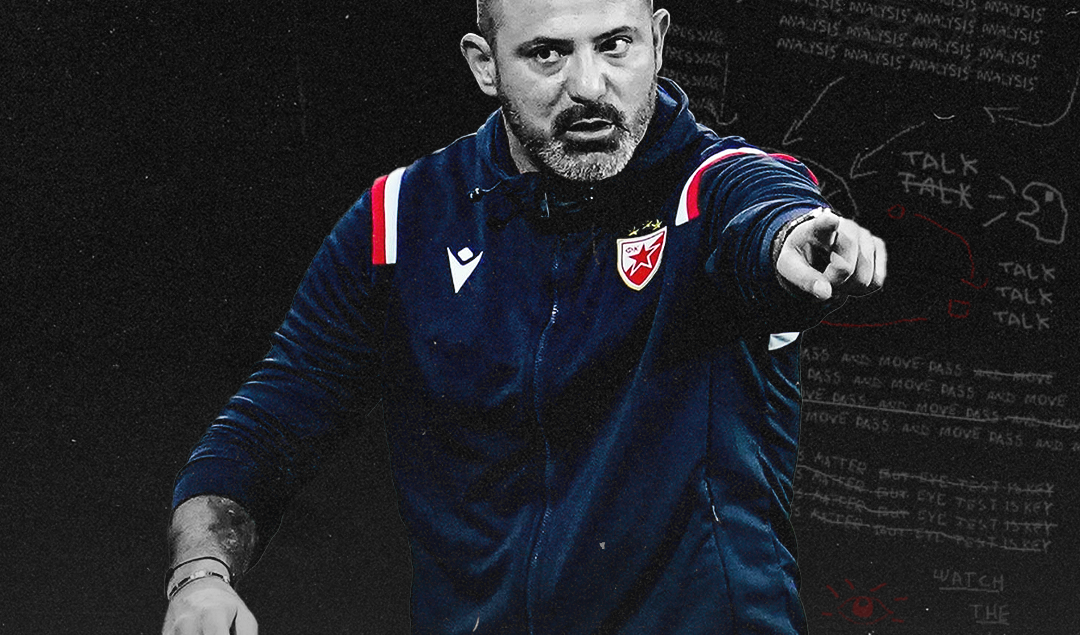The Thrill of Uncertainty: Why Fans Still Love Football in an Age of Predictive Models
Football hasn’t lost its hold. In an era where spreadsheets forecast outcomes and software sorts players into decimals, the game still keeps millions glued to their screens. What brings them back, week after week, isn’t some coded forecast. It’s the fact that the ball doesn’t care what the algorithm says. Fans continue watching because something wild might happen, and often it does.

Source: https://pixabay.com/photos/football-ball-soccer-field-stadium-488714/
The Limits of the Numbers
Analysts speak in probabilities now. Every shot gets filed under expected goals. Every pass fits into a map. Teams are sliced into categories: high press, deep block, possession-based, transition-focused. These labels help explain the game afterward. They do not guarantee anything before kickoff.
That same appetite for prediction shows up in places beyond the pitch. Verfified online casinos apply a similar framework. They process inputs, suggest outcomes, and display possibilities. But the moment someone makes a choice, the situation changes. That gap between what should happen and what might happen keeps people interested, whether they are looking at a screen or watching eleven players chase a result.
When the Impossible Happens
In 2019, Manchester United faced Paris Saint-Germain in the Champions League with half their starters missing. PSG had a two-goal cushion and home advantage. The odds lined up without hesitation. Yet United scored twice, pushed the match to the brink, and sealed it with a last-minute penalty. No predictive model accounted for the particular way that unfolded.
Argentina began the 2022 World Cup with a shock defeat to Saudi Arabia. Every pre-tournament chart placed them among the favorites. Every pre-match model handed them the opener. Japan topped their group after defeating both Germany and Spain. Morocco played its way to the semi-finals. These teams changed outcomes without asking the algorithms.
In 2004, Greece lifted the European Championship trophy after silencing hosts, favorites, and former champions. Croatia reached the World Cup final in 2018 and followed it with a semifinal run in 2022. Their consistency defies their size, budget, and depth. These stories only grow when they break from expectation.
Drama Without a Script
Much of football’s tension sits between what should happen and what does. That space fills stadiums and rattles screens. Fans show up not because they want confirmation. They show up for the tension between possibility and consequence.
Every cup final comes packed with that weight. The Champions League delivers its own form of stress test. Real Madrid lifting the trophy year after year wasn’t some orderly process. They dodged elimination with Sergio Ramos headers, late-minute goals, extra time grit, and penalty shootout nerve. Every moment threatened to shift the narrative, but Madrid survived through things a spreadsheet couldn’t label.
The FIFA World Cup always proves hard to script. In 2018, Croatia reached the final, even though the bracket did not favor them. They played extra time in all knockout rounds before the final. No calculation would have written it that way, but it happened, which is why the tournament mattered.
In club football, Leicester City’s 2015–16 Premier League triumph stands apart. Tipped for relegation at the start, they shrugged off every probability chart with relentless efficiency and Jamie Vardy’s scoring streak. Claudio Ranieri’s side didn’t win by out-possessing or outspending their opponents. They won by defying the equation.
These stories hold because they’re real. They weren’t plotted by design.
The Pull of the Unknown
The audience doesn’t vanish when models get smarter. Quite the opposite. The appeal lies in the disconnect between what data forecasts and what football delivers. Upsets, late goals, and bizarre red cards still crash through simulations.
This goes beyond statistics. Football absorbs emotion. A miss in the final minute hits differently when a crowd gasps in unison. Tension rises in group stages when a draw sends one team through and another home. This unpredictability feeds loyalty. People aren’t drawn to predictability. They stay for the instability.
Amid all that, conversations spill into daily life. Supporters argue tactics over coffee, dream about lineups during work, and speculate about formations through group chats. That culture breathes through uncertainty.
In matches with implications beyond silverware, like regional derbies or final day relegation clashes, the weight can become personal. Clubs like Nottingham Forest, Schalke, or Genoa carry years of drama into a single fixture. The build-up stretches beyond numbers. It blends identity, memory, and fear.
Everyone Becomes a Prophet
The rise of statistical coverage created a strange by-product. Fans started speaking in expected goals and carrying data into match day chatter. That’s created a form of at-home punditry. But when games kick off, many ditch the forecast and surrender to emotion.
Penalty shootouts strip away all pretense. So do stoppage-time scrambles. Even the most analytical supporters feel nerves that contradict what the models suggest. The human reaction doesn’t always wait for confirmation.
Major tournaments amplify this. During the World Cup, an entire nation may freeze during a shootout, regardless of what the data says about success rates. That moment carries weight beyond the numbers.
Fantasy leagues and bracket competitions grow every year. Fans make predictions, calculate player value, and weigh fixture difficulty. But during a 90-minute stretch, instinct usually wins. Goals are still cheered based on impact, not efficiency.

Source: https://pixabay.com/photos/audience-soccer-stadium-1866738/
Heroism Without Blueprint
Football does not need a formula to make legends. The path to recognition rarely looks smooth. Some players arrive at tournaments without fanfare and leave as symbols. Others stumble through form and still find a way to define history. Predictive metrics cannot capture the impact of timing, pressure, or momentary brilliance.
When One Goal Changes Everything
Paolo Rossi remains a sharp example. Banned for two years before the 1982 World Cup, he walked into the tournament carrying public doubt. Italy did not shine early. Then came the match against Brazil. Rossi scored a hat-trick and never stopped. He finished with six goals, the Golden Boot, and the trophy. The data had nothing to say about redemption arcs.
James Rodríguez arrived at the 2014 World Cup as a promising midfielder. He left it as a global name. His volley against Uruguay, taken with no hesitation and perfect contact, became the image of the tournament. Colombia reached the quarterfinals, their best result in World Cup history. No prediction flagged that.
At club level, the pattern holds. Didier Drogba’s goal against Bayern Munich in the 2012 Champions League Final rescued Chelsea. He then converted the decisive penalty. Dirk Kuyt’s work rate carried Liverpool through matches that needed more than tactics. Fernando Torres, quiet for months, scored against Barcelona in 2012 to send Chelsea to the final. These players didn’t follow expected trajectories.
Football keeps creating new stories, but the surprise stays intact. Data explains structure. It does not explain why some names last forever.
Managers Against the Current
Coaches absorb this uncertainty differently. They prepare with analysts, brief their teams, and set traps for opponents. But during matches, unpredictable things unfold. Red cards, deflections, weather shifts, and individual errors break plans.
Jurgen Klopp’s Liverpool, for all its pressing structure, still relied on late winners and unplanned surges to make history. Pep Guardiola’s highly tactical Manchester City often needed grit over geometry. Even the most structured setups leave space for disruption.
Gareth Southgate’s England reached a Euro final and a World Cup semi-final, but those campaigns didn’t follow neat logic. England’s loss to Iceland in 2016 came as a statistical embarrassment. Their improvement under Southgate didn’t come from data revolution. It came from belief, structure, and perseverance inside matches filled with unknowns.
Managers respect the numbers. They also respect the chaos that surrounds them.
False Certainty in Technology
Goal-line technology brought clarity. VAR promised order. What followed was more debate, more opinion, and louder arguments. Football accepted technology without giving up its ambiguity.
VAR decisions, even when correct, do not silence a stadium. They often turn whispers into roars. People argue about intention, positioning, and how a rule applies to context. Those arguments feed into football’s broader culture.
Technology doesn’t erase emotion, but it does sometimes heighten it. Predictive tools work best in private, in preparation. On the pitch, they compete with chance and judgement.
Underdogs Still Carry the Flag
Every season, an underdog breaks through. Villarreal reaching a Champions League semi-final. Atalanta smashing expectations in Serie A. Brighton taking on the Premier League elite.
In international competitions, these stories grow louder. Japan outplayed Germany and Spain in 2022. Senegal won the Africa Cup of Nations after decades of heartbreak. The game allows room for ambition, even when the forecast says otherwise.
Supporters latch onto these stories because they feel personal. Underdogs don’t need numbers to justify their ambition. They just need a few good passes, one good run, a moment of luck, and someone who believes.
The sport continues to carry these stories year after year.
A Game That Talks Back
Football speaks through noise, movement, chants, and stoppages. It doesn’t always follow a rational script. That makes it valuable. Fans trust the game because it surprises.
Those who follow the sport closely can recite years based on moments. They remember where they were when Zidane volleyed at Hampden, when Iniesta scored in Johannesburg, or when Aguero sealed the league at the Etihad. These memories do not form through logic. They live through emotion.
Predictive models help explain the shape of a season. They don’t replace it. The matchday clock keeps ticking, and what happens between kickoff and full-time still carries weight.
Football doesn’t need certainty to stay relevant. It thrives on what no one sees coming.
